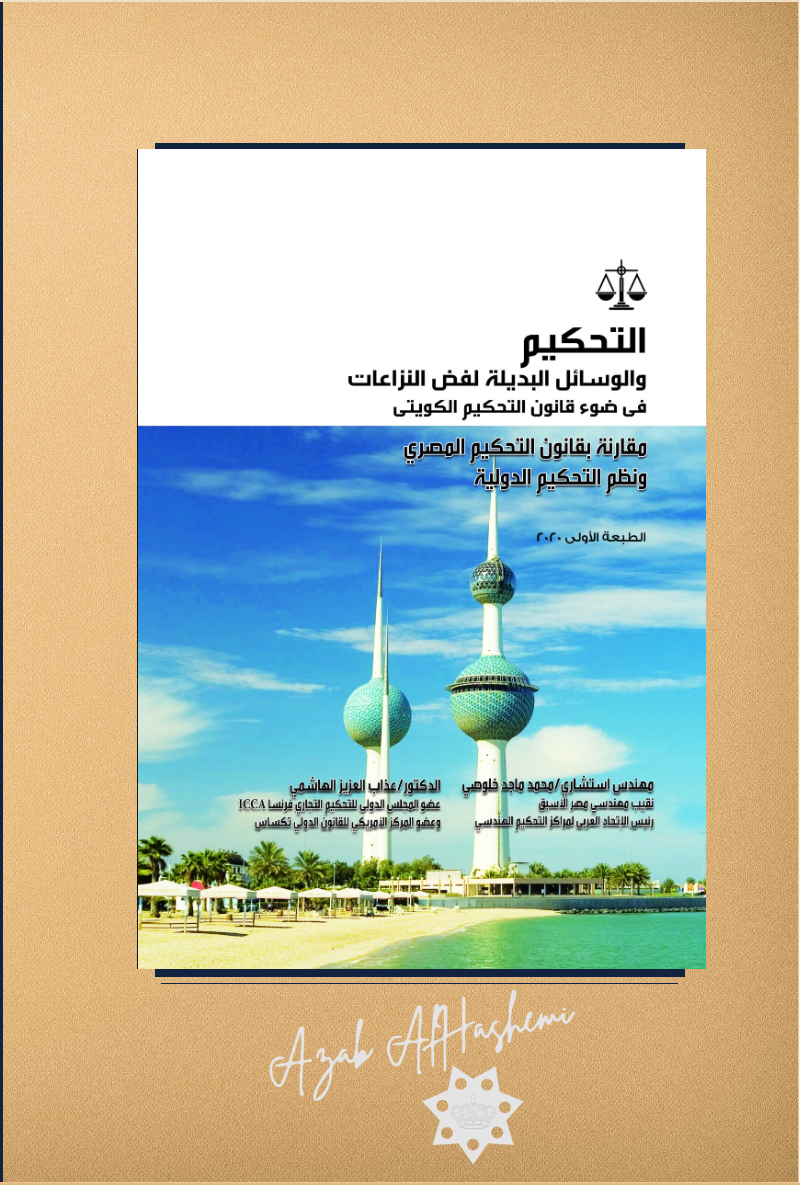Description
Product details
- Publisher : Dar AISalaam ( January 1, 2019)
- Language : Arabic
- Paperback : 300 pages
- ISBN : 978-977-90-6696-7 National Books and Documents House
- Item Weight : 2.06 pounds
- Dimensions : 8.27 x 0.35 x 11.69 inches
- By: Dr.Azab Alaziz Alhashemi
- Dr.Mohamed Majed Kolosi
Resorting to arbitration, as a way to resolve disputes, has become inevitable in many cases, although access to it, according to the principle, is optional for the litigants and they are not forced by a provision in a law or regulation. Disputes in many contracts, especially international ones, are estimated at millions or even billions, which makes the issues related to disputes urgent in nature and by economic conditions that are represented in the instability of exchange rates for currencies in which the obligations arising from those contracts are fulfilled, and their vulnerability to ups and downs with time. Time and the phenomenon of inflation lead to a decrease in the value of money with time as well, especially if it is related to the currency of a third-world country.
For all this, the speedy settlement of this type of dispute has become imperative. Arbitration, with the speed it achieves in settling disputes and the simplicity it entails in litigation procedures, has become the destination that the disputing parties turn to.
Arbitration at present has occupied a large area of the state’s organized judiciary. The slow pace of litigation and the complexity of its procedures and the “automatic referral” of disputes of a technical or artistic nature, such as disputes in the field of contracting, engineering, accounting, and banking issues “to the experts”. The star of arbitration, especially the institutional one.
The litigants’ freedom to choose their arbitrators allows them to appoint specialized persons in the field of the dispute arising between them, and thus avoid referring these disputes to experts who usually take long times, which may extend to years, in carrying out the task entrusted to them and preparing their reports on it.
The arbitration system in the “State of Kuwait” differs greatly from arbitration in the Arab countries, as it singled out a special system for arbitration in cases in which the state is a party. It is the judicial arbitration system, which is divided into three sections: The first section: is compulsory, which is established between ministries and various government agencies or public legal persons and companies owned by the state. And the second section: is optional for those who wish to resort to judicial arbitration, and the third section: is optional for the parties to the dispute, who are individuals or private legal persons, and obligatory for the other party, which is the ministries and government agencies, and benefactors are obligated to resort to compulsory arbitration.
Despite all this, judicial arbitration is not valid for the consideration of administrative cases, but rather the administrative department in the state is concerned with them. In this book, we have explained the voluntary arbitration law No. (38) for the year and the compulsory No. 11 for the year 1995 AD. The book contains several important matters related to arbitration, which are a detailed explanation of the causes of disputes, the concept of force majeure or emergency circumstances, termination and termination of the contract, and modern mechanisms for resolving disputes.





Reviews
There are no reviews yet.